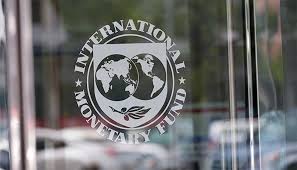The International Monetary Fund has revised Ghana’s growth rate marginally by 0.1% to 4.7% in 2021, signaling the Ghanaian economy is recovering from the impact of Covid-19.
This is line with forecast by the World Bank (4.9%) and other renowned international institutions.
According to its October 2021 World Economic Report, Ghana’s economy will also expand by 6.2% in 2022.
The higher growth rate indicates that businesses will be able to generate more revenue from sales and expand into the future.
However, these higher growth rates have not really translated into real jobs and rapid improvement of the livelihood of the people.
The Fund also revised Ghana’s Gross Domestic Product projection for last year to 0.4%.
Ghana’s growth rate according to the Fund will be higher than Sub Saharan Africa’s regional average of 3.4% in 2021.
“The revisions in part reflect improved assessments for some commodity exporters outweighing drags from pandemic developments (Latin America and the Caribbean, Middle East and Central Asia, sub-Saharan Africa)”, it explained.
BoG data points to rebound in economy
Data from the Bank of Ghana had indicated that the Ghanaian economy was on a rebound with a sustained momentum in pick-up in economic activity.
According to its September 2021 Monetary Policy Committee Report, developments continue to point to sustained recovery in economic activity following the downturn at the peak of the pandemic.
“The Bank’s update of the Composite Index of Economic Activity (CIEA) for July 2021 reflected continued recovery in domestic economic activity. The real CIEA recorded a 20.0% year-on-year growth in July 2021, compared with 20.2% in June 2021, and 3.9%t growth in July 2020. The growth in the indicators were somewhat broad-based with port activity, imports, domestic VAT, and air-passenger arrivals accounting for the increase.”
Data from the Ghana Statistical Service indicated a stronger pick up in the annual GDP growth to 3.9% in the second quarter of 2021, from the 3.1% recorded in the first quarter, and a 5.7% contraction recorded in the same period of 2020. Non-oil GDP, for the same period, grew by 5.2%, compared with a contraction of 5.8% recorded for the same period in 2020.
The stronger growth performance in the second quarter, the Central Bank noted, reflects the sharp rebound experienced in the cocoa sub-sector which grew by 27.6%, supported by equally stronger growth of 18.7% in Hotels & Restaurants, 13.8% in Real Estate, and 10.7% in trade.
This stronger performance was however, moderated by a contraction of 18.9% in the mining and quarrying sub-sector, on account of a 10.8% contraction in the production of oil and gas.
Latest Stories
-
Omane Boamah leads Ghana to join Burkina Faso in honoring Sankara and Rawlings at historic memorial ceremony
2 hours -
I was 20 when I played for Ghana’s U-17 team – Charles Taylor
4 hours -
JoySports Editor Fentuo Tahiru launches Tumu Community Cup set for May 24
4 hours -
Joseph Taylor breaks Ghana’s 29-Year 400m national record with sub-45s run
4 hours -
Greater Accra public lands: Government to set up Commission of Inquiry
5 hours -
Cleanliness to be used for measuring performance of MMDCEs – Mahama
5 hours -
You are now a beacon of hope – Nungua Mantse to President Mahama
5 hours -
‘Smart formalisation’ holds the answer to Africa’s problems – Bawumia
5 hours -
President Mahama assures chiefs and people of Greater Accra of good roads
5 hours -
Mahama announces plans to upgrade Greater Accra Regional Hospital to Teaching Hospital
5 hours -
‘Stop boasting amidst debt’ – Walewale MP chides government
5 hours -
Walewale MP accuses John Jinapor of dubious procurement amid energy sector concerns
6 hours -
Toobu urges humane and collaborative approach to tackling street begging
6 hours -
26-year-old cleaner jailed 36 months for stealing $5k
6 hours -
Herdsman in police custody over cattle theft
6 hours

